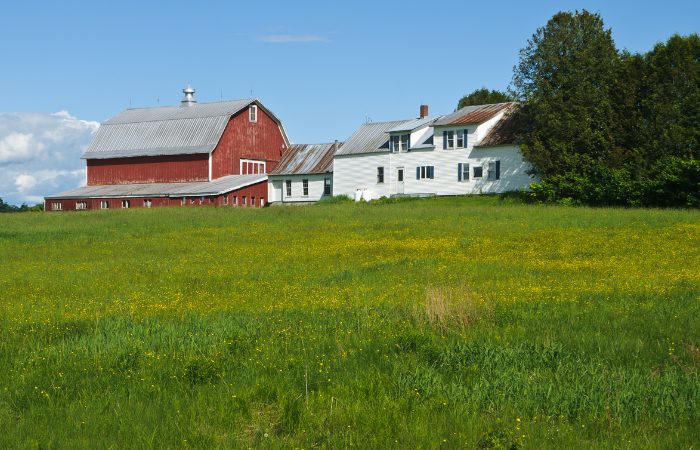When it comes to picturesque landscapes, serene living, and the charm of rural life, farmstead Real Estate in Littleton, CO, stands out as a prime choice for homebuyers seeking a blend of countryside allure and modern amenities. Nestled in the heart of Colorado, Littleton presents a unique blend of suburban ease and rural serenity, making it an ideal destination for those looking to escape the hustle and bustle of city life.
Whether you’re a seasoned real estate investor or a first-time homebuyer, navigating the farmstead real estate market in Littleton requires some essential insights. Let’s explore some key tips to help you make informed decisions.
What is Farmstead Real Estate?
Farmstead real estate refers to properties located in rural or semi-rural areas that typically include agricultural land, farmhouses, barns, and other outbuildings. These properties offer a peaceful retreat from city life and often cater to individuals seeking a self-sufficient lifestyle or those interested in farming, ranching, or equestrian pursuits. Farmstead real estate in Littleton, CO, showcases the natural beauty of the region while providing opportunities for sustainable living and outdoor recreation.
Essential Tips for Farmstead Real Estate
Successfully navigating the farmstead real estate market in Littleton entails thoughtful deliberation and strategic planning. Regardless of whether you’re a seasoned investor or a first-time homebuyer, adhering to these fundamental tips will enable you to make informed decisions:
Partner with a Local Real Estate Agent
Navigating the farmstead real estate market in Littleton requires expertise and insider knowledge. Partnering with a local, experienced real estate agent can offer priceless assistance. They can offer insights into property listings, market trends, and zoning regulations specific to farmstead communities.
Research Zoning Regulations
Before investing in farmstead real estate, familiarize yourself with zoning regulations and land use policies in Littleton. These regulations dictate what activities are permitted on rural properties, including farming, ranching, and residential development. Understanding zoning laws will help you make informed decisions about property usage and potential restrictions.
Consider Property Size and Features
Farmstead properties in Littleton range in size and configuration from modest homesteads to sprawling estates. When evaluating properties, consider your space requirements, desired amenities, and land use goals. Factors such as acreage, soil quality, water rights, and existing infrastructure should also be taken into account.
Assess Water Resources
Water is a precious resource for farmstead living, particularly in arid regions like Colorado. Evaluate the accessibility and dependability of water sources on prospective properties, including wells, irrigation rights, and access to surface water. Adequate water resources are essential for farming, gardening, livestock, and household use.
Budget for Maintenance Costs
Owning a farmstead property entails ongoing maintenance and upkeep, from maintaining fences and outbuildings to caring for landscaping and agricultural infrastructure. Budgeting for these expenses is crucial for ensuring the long-term sustainability of your rural lifestyle. Factor in costs for equipment, repairs, utilities, and seasonal maintenance tasks.
Embrace Sustainable Living Practices
Farmstead living in Littleton presents an opportunity to embrace sustainable living practices that minimize environmental impact and promote self-sufficiency. Explore eco-friendly initiatives such as rainwater harvesting, renewable energy systems, organic gardening, and permaculture design. Adopting sustainable practices not only diminishes your carbon footprint but also enhances the resilience of your farmstead property.
Engage with the Farming Community
One of the highlights of farmstead living is the sense of community fostered by shared agricultural pursuits and rural traditions. Get involved in local farming initiatives, farmers’ markets, and community events to connect with similar-minded individuals and support the local economy. Building relationships within the farming community enriches your farmstead experience and creates a sense of belonging.
Explore Financing Options
Financing a farmstead property may differ from traditional residential properties due to factors such as acreage, agricultural use, and rural location. Explore financing options tailored to rural properties, such as USDA loans, agricultural mortgages, and land contracts. Working with lenders experienced in farmstead real estate can streamline the financing process.
Plan for Future Growth
As you embark on your farmstead real estate journey in Littleton, consider the long-term vision for your property and lifestyle. Develop a comprehensive plan for land use, property improvements, and potential expansion opportunities. Whether you aspire to establish a working farm or equestrian estate or simply enjoy the tranquility of rural living, thoughtful planning ensures your farmstead property evolves to meet your changing needs and aspirations.
Frequently Asked Questions

Can I use the farmstead for residential purposes only?
While farmsteads are typically intended for agricultural use, some properties may have existing residential structures or be suitable for residential development. However, zoning regulations, land use restrictions, and local ordinances may dictate the allowable uses of the property. It’s essential to check with local authorities and conduct due diligence before purchasing a farmstead for residential purposes.
How can I assess the market value of a farmstead?
Assessing the market value of a farmstead involves factors such as comparable sales data, agricultural productivity, land quality, location, amenities, infrastructure, and potential income streams. Seeking advice from a real estate agent experienced in agricultural land can help determine the property’s market value.
What’s the difference between a homestead and a farmstead?
While both homesteads and farmsteads involve a residential dwelling and land, the distinction lies in the primary focus of the property. A homestead is primarily for residential living, often with a focus on self-sufficiency, while a farmstead emphasizes agricultural activities and may include commercial farming operations.
Conclusion
Farmstead real estate in Littleton, CO, offers a unique blend of rural charm and modern amenities, which makes it an attractive option for homebuyers seeking a serene lifestyle amidst picturesque landscapes. Whether you’re considering investing in farmstead properties or looking to embrace sustainable living in the countryside, these essential tips can guide you through the process.
Are you looking for farmstead real estate in Littleton? Reach out to 3D Real Estate for personalized assistance. Whether you want a cozy farmhouse, a large estate, or land for farming, we’re here to help make it happen. Contact us today to start your farmstead journey with confidence.




